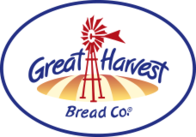Real Food. Real People.
Most Americans don't eat their recommended daily fiber intake. Maybe they’re living with constipation, perhaps not. But fiber does more than help your bowel movement. Here’s why you need it and how you can get it.


Why Your Body Needs Fiber
When you think about consuming fiber, you think about going to the bathroom. Yes, fiber is most well-known for its abilities to help you relieve bloating and constipation. But it does so much more than just facilitate your bowel movement. It helps reduce the risk of strokes, diabetes, heart disease, and hypertension as well. It also plays a significant role in weight loss. Fiber is never actually digested, but it’s necessary. There are two types of fiber your body needs: soluble and insoluble. Soluble fiber turns into a gel in your stomach and helps slow digestion, which in turn helps lower blood glucose and cholesterol. Insoluble fiber remains the same as it makes its way into the colon. Its job is to make waste heavier and softer so it can glide through the intestines with ease.How Much Fiber Do You Need?
The average American consumes 15 grams of fiber a day, which less than what they should. It’s recommended by the Institute of Medicine that men under 50 eat around 28 grams of fiber daily, and women should consume at 25 grams. People over 50 need less fiber. It should be 30 grams for men and 21 grams for women. When you’re increasing your fiber intake, be sure to do it gradually. Doing it too fast can promote abdominal discomfort, gas, and bloating. You need to allow the natural bacteria in your digestive system to adjust. Don’t forget to combine your fiber intake with lots of water. Hydration is essential to fiber absorption.Go for Whole Grains
Whole grains are always the healthier choice, and you should include them in your daily diet. Whole grains are minimally processed, unlike refined grains. The grain is practically left intact, meaning it keeps its vitamin-containing germ and hull rich in fiber. You should eat some of these whole grains every day: brown rice, amaranth, barley, buckwheat, oatmeal, and quinoa. You can eat them directly in some healthy recipes, or eat them in your bread. In fact, you should head to your favorite bakery in Newtonville, to get to the healthiest and tastiest bread options. Great Harvest of Newtonville uses whole grains to prepare their fiber-packed bread. Contact them at (617) 928-1162 to learn about their products.Make a Cereal Mix
It’s tough to give up your favorite sugary breakfast cereal, but you don’t have too. You can mix some healthy fiber-full All-Bran with your Cinnamon Crunch. You’ll barely taste the difference, yet you’ll be closer to consuming the necessary daily fiber.Look for Extra Help
We should always aim to get our nutrients, including fiber, from food. But sometimes we do need some extra help. If you really need to raise your fiber intake, consider taking a supplement. Maybe try guar fiber, of psyllium (the main ingredient in Metamucil). The one thing you need to be aware of fiber supplements is that they might cause some bloating and cramping. Also, some supplements can interfere with the absorption of certain medications, so try not to take them together.Let Veggies Have Their Starring Role
There are endless reasons why you should eat vegetables. They keep you healthy and fend off diseases. For many of us, veggies play a supporting role in our beef or chicken dinner plates. You should make veggies the star of your plate from time to time. Non-starchy veggies are low calories and high in fiber. Eat your vegetable before you eat the rest of your meal, this way you’ll consume more veggies.Munch on Some Popcorn
Looking to sneak in some fiber into your snacks? Munch on some popcorn. Since popcorn is a whole grain, you’ll be getting four grams of fiber per ounce. That’s three cups of popcorn, for those who hate weighing their food. Remember that the healthiest popcorn is air-popped. Do try to avoid butter and other toppings.Get Fruity
Fruit can be carried everywhere and makes for the perfect snack. All fruits are excellent sources of fiber, but some options really take the crown. A cup of watermelon has one gram of fiber, whereas a small pear has five grams of fiber. An apple a day keeps the doctor away. It also leaves you feeling satisfied for up to four hours. Just leave the peel because that’s where most of the fiber is. Berries have tons of benefits both mental and physical. They also tend to have less sugar than other fruits and incredible amounts of fiber.Prepare Your Trail Mix
If you feel the need for something crunchy and sweet and fruit just won’t do. Make your own trail mix. Mix some peanuts, cereal, dark chocolate, and raisins, and you’ve got a high-fiber, yet sweet snack.Go Nuts!
You should include nuts and seeds in your meals and snacks. They are such versatile foods that can be added to many of your favorite recipes. Add some seeds to your salads and yogurt, and use some nuts to add extra fiber and nutrition to your meals.Eat Some Bakery Bread to Increase Your Fiber Intake in Newtonville
The healthy and delicious bread you can find at Great Harvest of Newtonville can help you reach the recommended daily fiber intake. Contact the bakery at (617) 928-1162 to learn all about their products.
Great Harvest Bread of Newtonville
We'd love to be in touch with you

